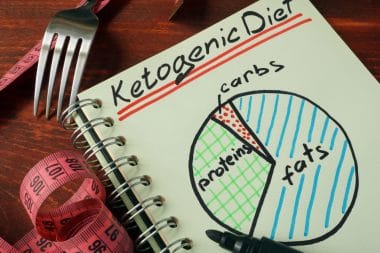Is obesity genetic? This is probably one of the most common questions asked when it comes to obesity.
Based on the research done there is no doubt a link exists between obesity and genetics. If your parents are obese you are more likely to become obese as well.
The Genetic Link
A recent study identified 4 more genes, to go along with the 8 scientists already knew about, that are tied to obesity.
According to the Center for Disease Control, genetics alone cannot answer or account for the widespread cases of obesity in the United States and worldwide. Calorie rich foods and lack of exercise still play significant roles.
Of course, upbringing and the parental lifestyles can have an effect on whether or not children will become obese, as they are more likely to adapt to the diet and exercise habits of their parents.
To further show the link between genetics and obesity researchers have discovered a chromosomal abnormality that can have a huge impact on whether or not you become obese.
Of course every case of obesity is different. Some cases are genetic while others are not.
In 2010 a study was published in the journal Nature. In that study researchers said they had found a defect in with chromosome 16. This defect greatly increased the chances of an individual becoming obese. Let me explain what a chromosome is so you can better understand how this can be.
A chromosome is a structure that contains DNA. DNA is the genetic material that makes us who we are. It determines how you will look as well as the likely hood you will develop certain diseases. When a defect is present in chromosome 16 it increases the likely hood they will become obese by as much as fifty times. As a matter of fact, study participants who had this defect were all obese.
When a person has a defect in chromosome 16 it means a small piece of the chromosome is missing. This missing piece is vital as it is responsible for thirty different genes. All of which help control your weight. Without the missing piece you are more likely to gain weight.
Researchers also believe these genes are in some way associated with two brain disorders. Schizophrenia and autism. Both of which are often linked to obesity.
The good news about this defect is it is only found in about one in a thousand people. It therefore is only responsible for a small number of obesity cases. When the defect is present it can affect a person in childhood. They will become overweight at a very young age and eventually become obese as an adult.
So Is Obesity Genetic?
The answer is yes, in some cases. Your genetics can determine how many fat cells you are born with. But it can also determine just how fast your metabolism is.
The bottom line is all obesity cases are not genetic. Some are due to health problems and others are due to poor eating habits and a lack of exercise. And, some are a combination of all of those things.
One thing is sure the obese can lose weight, and there is hope.
Therefore one of the easiest ways to combat it is to change your eating habits. Start eating a diet high in vegetables and fresh fruit. You should also get plenty of exercise. If these things don’t prove to be enough you should speak with your doctor.
Sometimes you may need medical intervention to help get the weight off. A doctor will give you a check up to see what the problem is. If medication is needed they will prescribe it so you can start the process of losing weight.








Reply